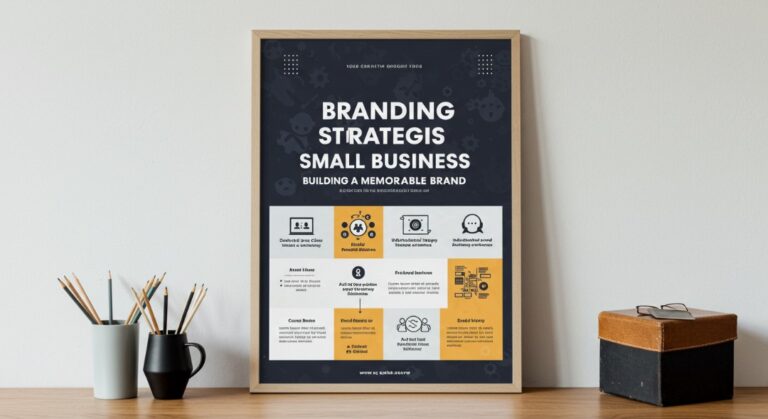WordPress continues to dominate as the world’s leading content management system (CMS), powering over 40% of all websites. As we approach 2025, this open-source platform is evolving faster than ever, driven by advancements in technology and shifting user expectations. Whether you’re a business owner, developer, or content creator, staying ahead of these trends is crucial to maintaining a competitive edge. Here’s a look at the top WordPress trends for 2025 and how you can leverage them to create dynamic, engaging, and high-performing websites.
1. AI-Powered WordPress: Smarter, Faster Websites
Artificial Intelligence (AI) is no longer a futuristic concept—it’s transforming how websites are built and managed. AI-powered tools are enabling faster content creation, image generation, and website design, significantly reducing development time and costs. From AI-driven chatbots to automated design tools, these innovations are making it easier than ever to create personalized and efficient websites.
Why It Matters:
AI tools can help you streamline workflows, improve user engagement, and deliver tailored experiences. For example, AI-powered plugins can analyze user behavior and suggest content optimizations, while automated design tools can generate stunning visuals in seconds.
2. Block Themes: The Future of WordPress Design Flexibility
Block themes are revolutionizing WordPress design, offering full-site editing capabilities through the Gutenberg editor. This drag-and-drop functionality allows users to design every aspect of their website with ease, making it a game-changer for businesses seeking flexibility and control.
Why It Matters:
Block themes empower users to create custom layouts without needing extensive coding knowledge. This trend is particularly beneficial for small businesses and solo entrepreneurs who want to maintain creative control over their websites.
3. Headless WordPress: Performance and Scalability Unleashed
Headless WordPress architecture separates the front end (user interface) from the back end (content management), allowing developers to use modern tools like React or Vue.js for the UI. This approach improves speed, flexibility, and scalability, making it ideal for businesses with complex needs.
Why It Matters:
Headless WordPress is perfect for businesses that require high-performance websites or applications. By decoupling the front end, developers can create faster, more responsive user experiences while still leveraging WordPress’s robust content management capabilities.
4. Voice Search Optimization: Reach Your Audience Where They Are
With the rise of voice assistants like Siri and Alexa, optimizing your website for voice search is no longer optional. Voice search optimization ensures your content is easily discoverable through voice-based queries, helping you reach a broader audience.
Why It Matters:
Voice search is changing how users interact with search engines. By optimizing for voice search, you can improve your website’s visibility and attract users who prefer hands-free browsing. Tools like Yoast SEO and Schema Pro can help structure your content for voice-based queries.
5. Enhanced Security: Protecting Your Digital Assets
As cyberattacks become more sophisticated, website security is a top priority. WordPress is continuously improving its security features, but proactive measures are essential to protect your digital assets.
Why It Matters:
A secure website builds trust with your audience and protects sensitive data. Implementing robust security measures, such as firewalls, malware scanning, and regular updates, can safeguard your site from potential threats.
6. Minimalist Design: Simplicity and User Experience
Minimalist design is more than just an aesthetic trend—it’s a strategy for improving user experience and website performance. Clean, clutter-free designs with ample white space and essential content load faster and engage visitors more effectively.
Why It Matters:
A minimalist design not only enhances visual appeal but also improves site speed and usability. By focusing on simplicity, you can create a website that delivers a seamless and enjoyable user experience.
7. Immersive Experiences: Engaging Customers with AR/VR
Augmented Reality (AR) and Virtual Reality (VR) are transforming how users interact with websites. These technologies allow businesses to create immersive experiences, such as virtual product demonstrations or interactive tours.
Why It Matters:
AR and VR can set your website apart by offering unique and engaging experiences. For example, e-commerce businesses can use AR to let customers “try on” products virtually, while real estate companies can offer virtual property tours.
8. Accessibility: Ensuring Inclusivity for All
Accessibility is no longer optional—it’s a necessity. Making your website usable for everyone, including people with disabilities, is not only ethical but also improves your reach and compliance with legal standards.
Why It Matters:
An accessible website ensures that all users, regardless of ability, can navigate and interact with your content. Implementing accessibility features, such as keyboard navigation and screen reader compatibility, can enhance user satisfaction and broaden your audience.
9. Dynamic Content: Personalized Experiences for Higher Conversions
Dynamic content personalizes the user experience by tailoring content based on user location, behavior, and preferences. This approach increases engagement, boosts conversions, and fosters customer loyalty.
Why It Matters:
Personalized content resonates more deeply with users, making them more likely to engage with your website. By leveraging dynamic content, you can deliver relevant messages that drive action and build lasting relationships.
10. Integration with Emerging Tech: Staying Ahead of the Curve
WordPress is integrating with emerging technologies like blockchain for secure payments and the Internet of Things (IoT) for controlling smart devices. These integrations open up new possibilities for innovation and efficiency.
Why It Matters:
Staying ahead of emerging technologies can give your business a competitive edge. For example, blockchain can enhance payment security, while IoT integration can enable smart device management directly from your website.
Embracing the Future of WordPress
The top WordPress trends for 2025 present exciting opportunities for businesses to create more dynamic, engaging, and effective websites. From AI-powered tools to immersive AR/VR experiences, these trends are shaping the future of web development. By staying informed and adapting to these changes, you can ensure your website remains relevant and competitive in the years to come.
Which of these trends excites you most? Start exploring how you can integrate them into your website today and take your online presence to the next level. You can contact us if you need a trusted partner.





